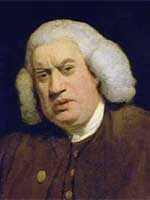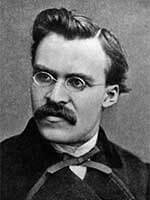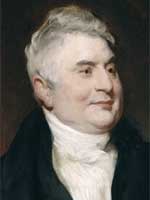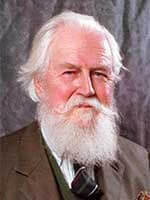Quotes 61 till 80 of 85.
-

The first line is the DNA of the poem; the rest of the poem is constructed out of that first line. A lot of it has to do with tone because tone is the key signature for the poem. The basis of trust for a reader used to be meter and end-rhyme.
-

The great American food writer M. F. K. Fisher once wrote an essay called 'The Anatomy of a Recipe.' To have a good anatomy, in her view, a recipe should have a sense of logical progression. She despaired of recipes with 'anatomical faults,' where the reader is told to make a cake batter and only then to grease the loaf pans.
-

The great work must inevitably be obscure, except to the very few, to those who like the author himself are initiated into the mysteries. Communication then is secondary: it is perpetuation which is important. For this only one good reader is necessary.
-

The headline is the most important element of an ad. It must offer a promise to the reader of a believable benefit. And it must be phrased in a way to make it memorable.
-

The mind is refrigerated by interruption; the thoughts are diverted from the principle subject; the reader is weary, he suspects not why; and at last throws away the book, which he has too diligently studied.
-

The newspaper reader says: this party will ruin itself if it makes errors like this. My higher politics says: a party which makes errors like this is already finished - it is no longer secure in its instincts.
-

The one thing a lifetime in the newspaper business teaches you is pace - you spend all your time trying to make sure that the reader's going to finish what you're writing.
-

The poem is not, as someone put it, deflective of entry. But the real question is, 'What happens to the reader once he or she gets inside the poem?' That's the real question for me, is getting the reader into the poem and then taking the reader somewhere, because I think of poetry as a kind of form of travel writing.
-

The reason a writer writes a book is to forget a book and the reason a reader reads one is to remember it.
-

The reason I got into acting was not to explore myself. I was a reader, I didn't care about acting. I got into it in college, but I had no interest really in that, in getting up in front of anybody.
-

The thing is, emotion - if it's visibly felt by the writer - will go through all the processes it takes to publish a story and still hit the reader right in the gut. But you have to really mean it.
-

The unread story is not a story; it is little black marks on wood pulp. The reader, reading it, makes it live: a live thing, a story.
-

The writer does the most good who gives his reader the most knowledge and takes from him the least time.
-

The writer is always tricking the reader into listening to their dream.
-

The writer's object is - or should be - to hold the reader's attention.
-

There are those who believe that the value of a children's book can be measured only in terms of the moral lessons it tries to impose or the perfect role models it offers. Personally, I happen to think that a book is of extraordinary value if it gives the reader nothing more than a smile or two. In fact, I happen to think that's huge.
-

To be misunderstood can be the writer's punishment for having disturbed the reader's peace. The greater the disturbance, the greater the possibility of misunderstanding.
-

Too much traffic with a quotation book begets a conviction of ignorance in a sensitive reader. Not only is there a mass of quotable stuff he never quotes, but an even vaster realm of which he has never heard.
-

What you're trying to do when you write is to crowd the reader out of his own space and occupy it with yours, in a good cause. You're trying to take over his sensibility and deliver an experience that moves from mere information.
All reader’s famous quotes and sayings you will always find on greatest-quotations.com (page 4)






